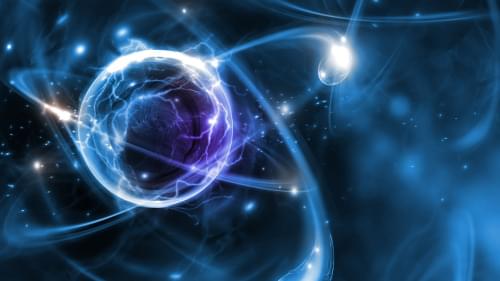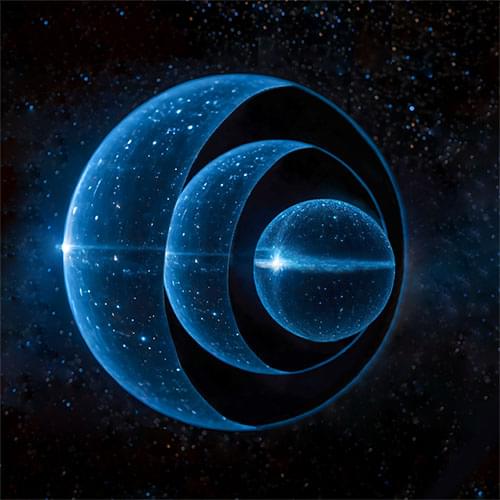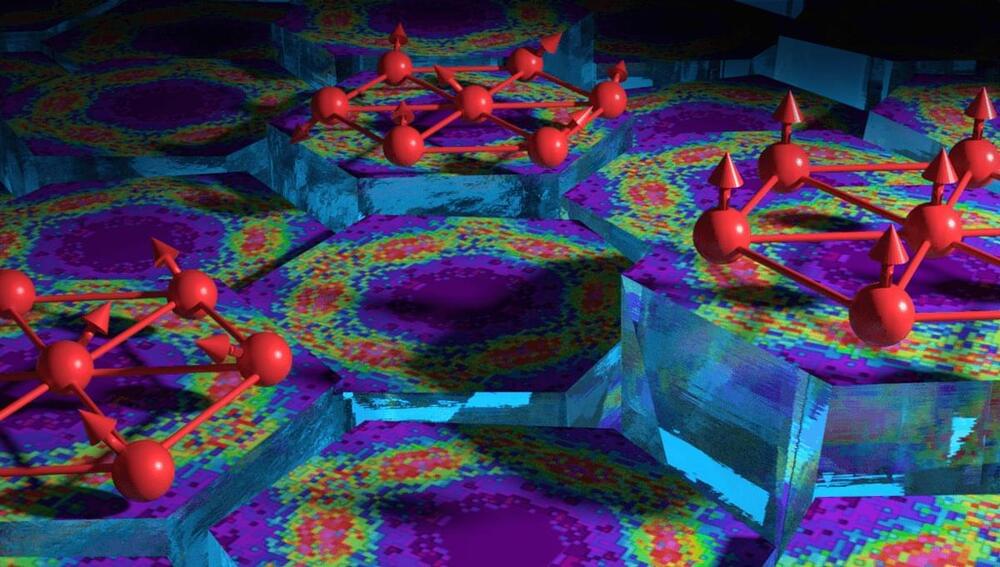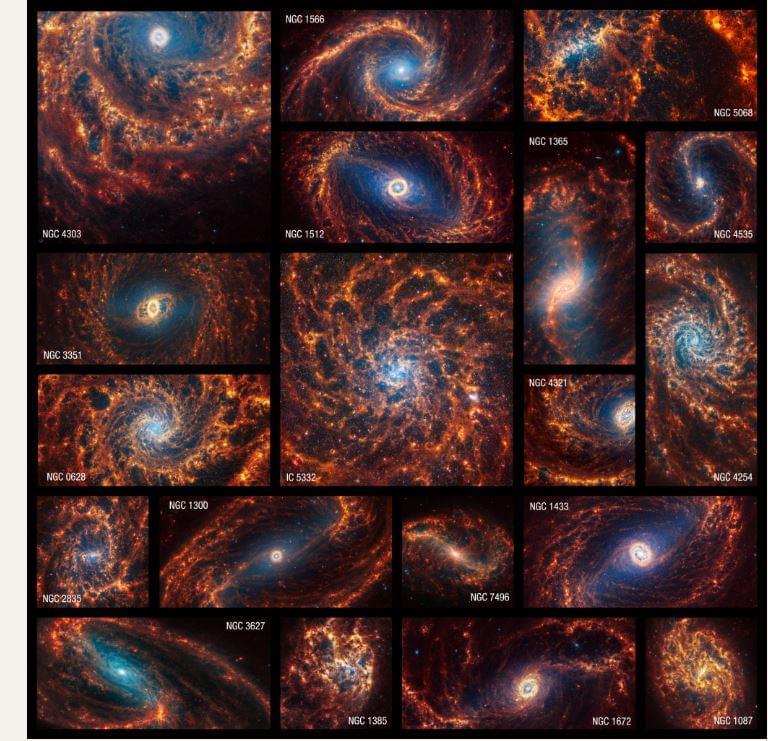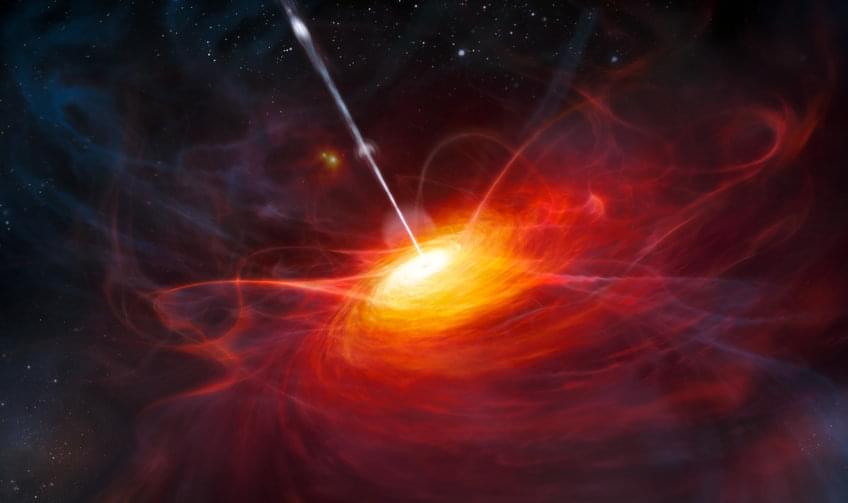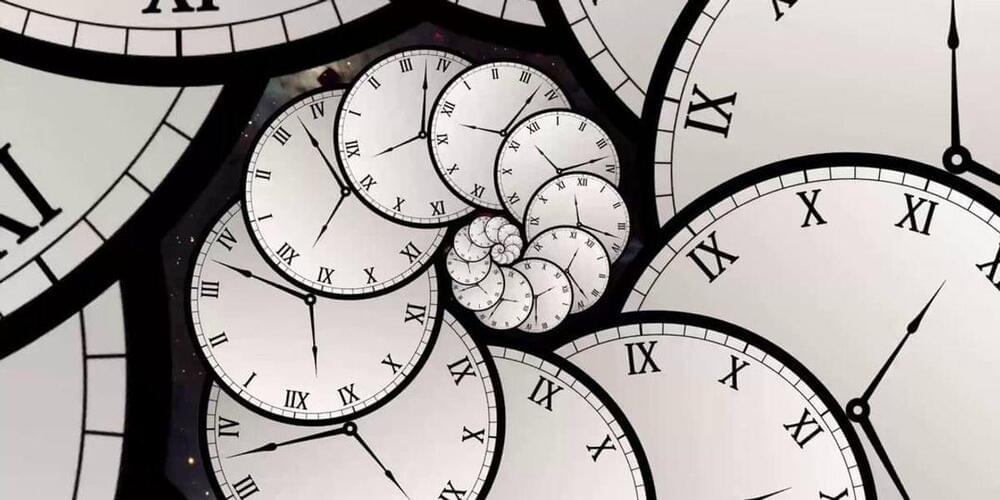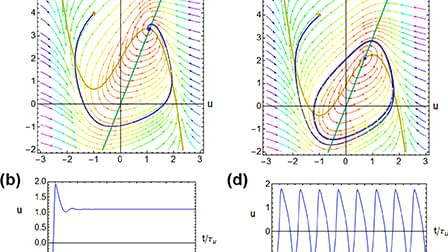Raman Research Institute (RRI), founded in 1948 by physicist and Nobel Laureate, Sir Chandrasekhara Venkata Raman is celebrating 75 glorious years.
Archive for the ‘physics’ category: Page 54
Feb 16, 2024
New nuclei can help shape our understanding of fundamental science on Earth and in the cosmos
Posted by Saúl Morales Rodriguéz in categories: physics, science, space
In creating five new isotopes, an international research team working at the Facility for Rare Isotope Beams (FRIB) at Michigan State University has brought the stars closer to Earth.
The isotopes —known as thulium-182, thulium-183, ytterbium-186, ytterbium-187 and lutetium-190—are reported in the journal Physical Review Letters.
These represent the first batch of new isotopes made at FRIB, a user facility for the U.S. Department of Energy Office of Science, or DOE-SC, supporting the mission of the DOE-SC Office of Nuclear Physics. The new isotopes show that FRIB is nearing the creation of nuclear specimens that currently only exist when ultradense celestial bodies known as neutron stars crash into each other.
Feb 16, 2024
A star like a Matryoshka doll: New theory for gravastars
Posted by Saúl Morales Rodriguéz in categories: cosmology, information science, physics, singularity
The interior of black holes remains a conundrum for science. In 1916, German physicist Karl Schwarzschild outlined a solution to Albert Einstein’s equations of general relativity, in which the center of a black hole consists of a so-called singularity, a point at which space and time no longer exist. Here, the theory goes, all physical laws, including Einstein’s general theory of relativity, no longer apply; the principle of causality is suspended.
This constitutes a great nuisance for science—after all, it means that no information can escape from a black hole beyond the so-called event horizon. This could be a reason why Schwarzschild’s solution did not attract much attention outside the theoretical realm—that is, until the first candidate for a black hole was discovered in 1971, followed by the discovery of the black hole in the center of our Milky Way in the 2000s, and finally the first image of a black hole, captured by the Event Horizon Telescope Collaboration in 2019.
In 2001, Pawel Mazur and Emil Mottola proposed a different solution to Einstein’s field equations that led to objects that they called gravitational condensate stars, or gravastars. Contrary to black holes, gravastars have several advantages from a theoretical astrophysics perspective.
Feb 15, 2024
A New Form Of Magnetism Could Make For More Powerful Memory Devices
Posted by Dan Breeden in category: physics
Feb 14, 2024
Staggering Structure in 19 Nearby Spiral Galaxies
Posted by Natalie Chan in categories: cosmology, physics
The James Webb Space Telescope observed 19 nearby face-on spiral galaxies in near-and mid-infrared light as part of its contributions to the Physics at High Angular resolution in Nearby GalaxieS (PHANGS) program.
It’s oh-so-easy to be absolutely mesmerized by these spiral galaxies. Follow their clearly defined arms, which are brimming with stars, to their centers, where there may be old star clusters and – sometimes – active supermassive black holes. Only NASA’s James Webb Space Telescope can deliver highly detailed scenes of nearby galaxies in a combination of near-and mid-infrared light — and a set of these images was publicly released today.
These Webb images are part of a large, long-standing project, the Physics at High Angular resolution in Nearby GalaxieS (PHANGS) program, which is supported by more than 150 astronomers worldwide. Before Webb took these images, PHANGS was already brimming with data from NASA’s Hubble Space Telescope, the Very Large Telescope’s Multi-Unit Spectroscopic Explorer, and the Atacama Large Millimeter/submillimeter Array, including observations in ultraviolet, visible, and radio light. Webb’s near-and mid-infrared contributions have provided several new puzzle pieces.
Feb 13, 2024
Black Hole at the Center of a Galaxy in the Early Universe received Less Mass Influx than expected, astronomers find
Posted by Natalie Chan in categories: cosmology, physics
With the upgraded GRAVITY-instrument at the Very Large Telescope Interferometer of the European Southern Observatory, a team of astronomers led by the Max Planck Institute for Extraterrestrial Physics has determined the mass of a black hole in a galaxy only 2 billion years after the Big Bang. With 300 million solar masses, the black hole is actually under-massive compared to the mass of its host galaxy. Researchers suspect what is happening here.
A paper on this work is published in the journal Nature.
In the more local universe, astronomers have observed tight relationships between the properties of galaxies and the mass of the supermassive black holes residing at their centers, suggesting that galaxies and black holes co-evolve. A crucial test would be to probe this relationship at early cosmic times, but for these far-away galaxies, traditional direct methods of measuring the black hole mass are either impossible or extremely difficult.
Feb 13, 2024
Scientists discover evidence of time being reversed in historic study
Posted by Paul Battista in categories: life extension, physics, time travel
The notion of time travel has fascinated humans for thousands of years, but it’s always been a work of fiction – until now.
Scientists have discovered evidence of time travel for real, albeit at a microscopic level. Till Bohmer and Thomas Blochowicz are the lead authors of a new study, Time reversibility during the ageing of materials, which is published in Nature Physics.
The research from the two researchers at the Technical University of Darmstadt in Germany focuses on time effectively ‘shuffling’ in the structure of certain materials like glass.
Feb 12, 2024
How LISA — A Gravitational Wave Observatory in Space — Will Transform Our Cosmic Understanding
Posted by Saúl Morales Rodriguéz in categories: physics, space
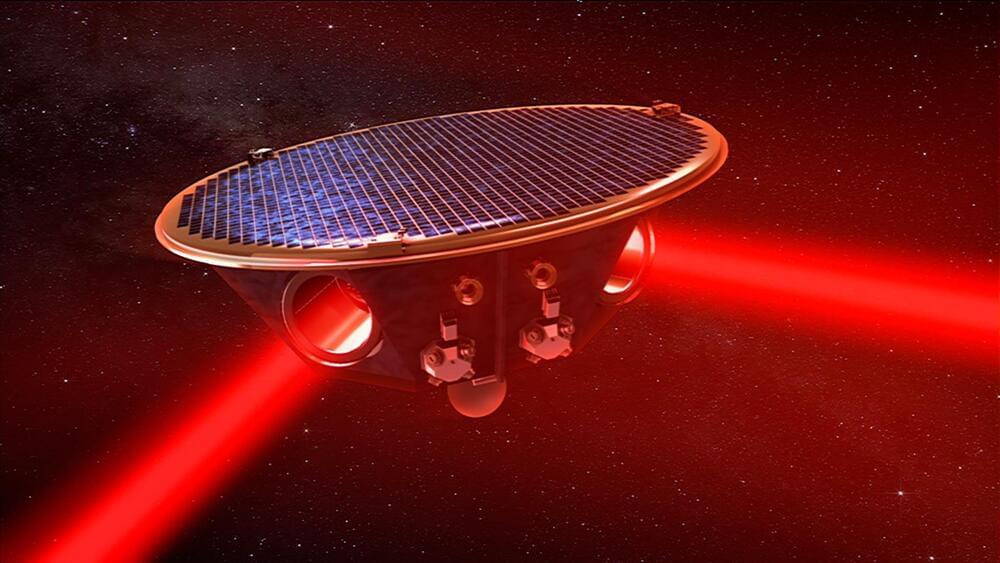
LISA, a collaborative mission between ESA and NASA, aims to detect gravitational waves from space, offering new insights into the cosmos through advanced technology and international cooperation.
The first space-based observatory designed to detect gravitational waves has passed a major review and will proceed to the construction of flight hardware. On January 25, ESA (European Space Agency), announced the formal adoption of LISA, the Laser Interferometer Space Antenna, to its mission lineup, with launch slated for the mid-2030s. ESA leads the mission, with NASA serving as a collaborative partner.
Feb 12, 2024
Revolutionizing Physics With a Game-Changing Topological Approach
Posted by Saúl Morales Rodriguéz in categories: mathematics, physics
Innovative research introduces a practical, model-free method for exploring topological properties in materials, enhancing the scope and efficiency of topological studies.
The branch of mathematics known as topology has become a cornerstone of modern physics thanks to the remarkable – and above all reliable – properties it can impart to a material or system. Unfortunately, identifying topological systems, or even designing new ones, is generally a tedious process that requires exactly matching the physical system to a mathematical model.
Researchers at the University of Amsterdam and the École Normale Supérieure of Lyon have demonstrated a model-free method for identifying topology, enabling the discovery of new topological materials using a purely experimental approach.
Feb 12, 2024
Device physics recipe to make spiking neurons
Posted by Dan Breeden in categories: biological, chemistry, physics, robotics/AI
Divice recipe for making spiking artificial neurons.
Neurons, which are made of biological tissue, exhibit cognitive properties that can be replicated in various material substrates. To create brain-inspired computational artificial systems, we can construct microscopic electronic neurons that mimic natural systems. In this paper, we discuss the essential material and device properties needed for a spiking neuron, which can be characterized using impedance spectroscopy and small perturbation equivalent circuit elements. We find that the minimal neuron system requires a capacitor, a chemical inductor, and a negative resistance. These components can be integrated naturally in the physical response of the device, instead of built from separate circuit elements. We identify the structural conditions for smooth oscillations that depend on certain dynamics of a conducting system with internal state variables. These state variables can be of diverse physical nature, such as properties of fluids, electronic solids, or ionic organic materials, implying that functional neurons can be built in various ways. We highlight the importance of detecting the Hopf bifurcation, a critical point in achieving spiking behavior, through spectral features of the impedance. To this end, we provide a systematic method of analysis in terms of the critical characteristic frequencies that can be obtained from impedance methods. Thus, we propose a methodology to quantify the physical and material properties of devices to produce the dynamic properties of neurons necessary for specific sensory-cognitive tasks. By replicating the essential properties of biological neurons in electronic systems, it may be possible to create brain-inspired computational systems with enhanced capabilities in information processing, pattern recognition, and learning. Additionally, understanding the physical and material properties of neurons can contribute to our knowledge of how biological neurons function and interact in complex neural networks. Overall, this paper presents a novel approach toward building brain-inspired artificial systems and provides insight into the important material and device considerations for achieving spiking behavior in electronic neurons.
